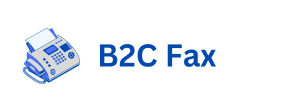Effective marketing outreach depends on delivering the right message to the right audience at the right time. In the digital age, this requires more than intuition or guesswork.
Special databases have become essential tools, allowing businesses to organize, analyze, and utilize customer data for precise and impactful campaigns.
This article explores how special databases enhance marketing outreach by improving audience targeting, personalizing communication improve your marketing outreach, and streamlining operations for better results.
The Role of Special Databases in Marketing Outreach
1. Organized Customer Data
Special databases compile and structure customer data, such as demographics improve your marketing outreach, purchase history loan database, and interaction records. This organization helps marketers access valuable insights quickly and efficiently.
2. Enhanced Audience Understanding
By analyzing data, businesses can gain a deeper understanding of their audience’s preferences, behaviors, and needs, ensuring campaigns resonate effectively.
3. Efficient Resource Allocation
Special databases enable marketers to focus on high-potential leads and channels improve your marketing outreach, reducing wasted resources and maximizing ROI.
Ways Special Databases Improve Marketing Outreach
1. Precise Audience Segmentation
Segmenting your audience is one of the most impactful ways to enhance marketing outreach. Special databases enable segmentation based on:
- Demographics: Age, gender, location, and income level.
- Behavior: Purchase patterns improve your marketing outreach, website activity, and engagement levels.
- Interests: Preferences for specific products or services.
Example: A beauty brand can create separate campaigns for skincare and makeup enthusiasts improve your marketing outreach, ensuring each group receives content that aligns with their interests.

2. Personalized Communication
Consumers expect personalized experiences. Special databases provide the data necessary to:
- Send tailored emails with relevant product recommendations.
- Offer discounts and promotions based on past purchases.
- Create dynamic ads targeting specific customer segments.
Example: An e-commerce store might send a personalized email suggesting complementary products to a customer who recently bought a smartphone improve your marketing outreach buying email lists: a quick and easy marketing solution, such as phone cases or chargers.
3. Optimized Campaign Timing
Timing is critical in marketing. Special databases help identify the best times to reach out by analyzing customer behavior, such as:
- Peak activity hours for email opens or social media engagement.
- Seasonal trends in purchasing habits.
- Frequency of previous interactions.
Example: A holiday-themed online store can use database insights to launch campaigns during peak shopping periods improve your marketing outreach, maximizing visibility and sales.
4. Performance Monitoring and Adaptation
Special databases track and store key performance metrics improve your marketing outreach, enabling businesses to:
- Measure the success of campaigns in real time.
- Identify what works and what needs improvement.
- Adjust strategies on the fly to enhance results.
Example: A SaaS company might monitor which email subject lines have the highest open rates and use similar strategies in future campaigns.
Benefits of Using Special Databases
1. Higher Engagement Rates
Targeted and personalized campaigns resonate more with audiences improve your marketing outreach, leading to higher engagement levels.
2. Increased Conversion Rates
Reaching the right audience with the right message increases the likelihood of converting leads into customers.
3. Stronger Customer Relationships
Frequent and relevant communication builds trust, fostering long-term customer loyalty.
4. Cost Efficiency
Focusing on high-value leads and optimizing campaigns reduces unnecessary expenses improve your marketing outreach and improves ROI.
Best Practices for Leveraging Special Databases
1. Regularly Update Your Database
Keep your database accurate and up to date by removing duplicates improve your marketing outreach, verifying contact information, and incorporating new data.
2. Ensure Data Security
Protect customer information by adhering to privacy laws like GDPR or CCPA and implementing robust encryption and access controls.
3. Analyze and Refine
Continuously analyze database insights to identify trends and refine your marketing strategies.
Real-Life Success Stories
1. Boosting Email Campaign Performance
A retail clothing brand used its database to segment customers by purchase history and style preferences. Personalized email campaigns resulted in a 35% increase in click-through rates.
2. Enhancing Ad Targeting
A fitness company used its database to target specific customer groups on social media. By promoting gym memberships to workout enthusiasts improve your marketing outreach aero leads, they reduced ad spend while increasing sign-ups by 20%.
3. Improving Customer Retention
A subscription service identified at-risk customers using its database and launched a retention campaign with personalized offers. This reduced churn by 15%.

